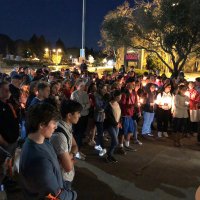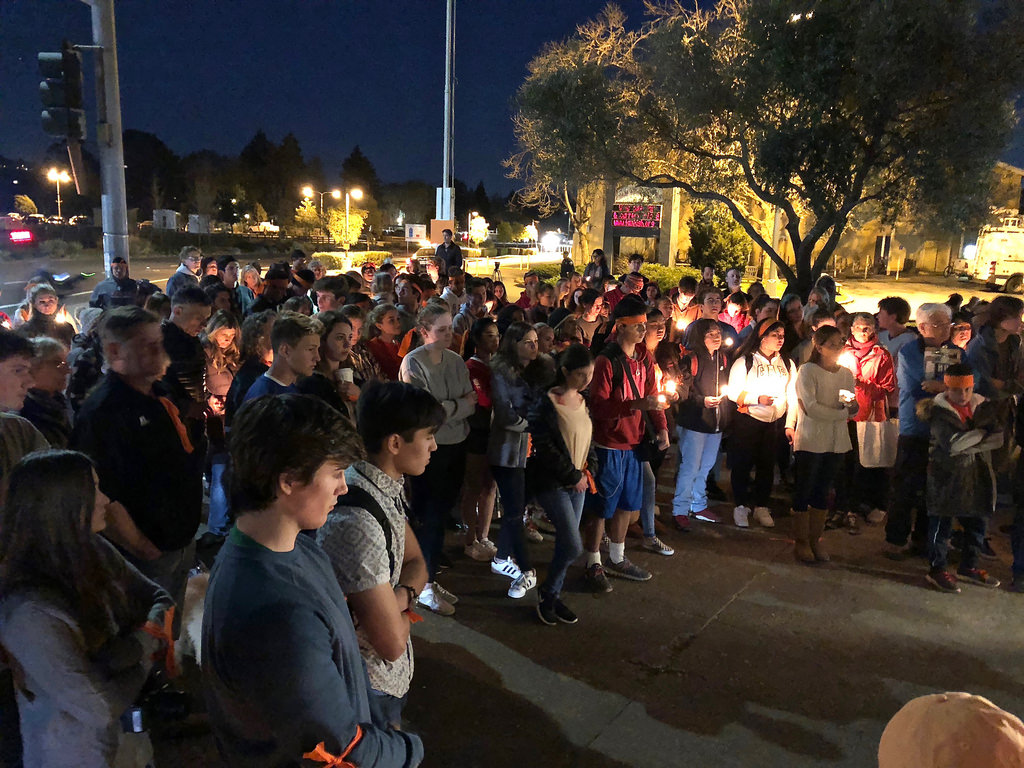It’s been a hard week, for no one more so than families in Parkland, Florida.
We watched in horror as students ran out of Marjory Stoneman Douglas High School, as they posted videos on Twitter while hiding in their classrooms. We heard their terrified screams as each gunshot rang out in rapid succession.
17 students were killed this week. And it wasn’t even the worst school shooting in recent memory.
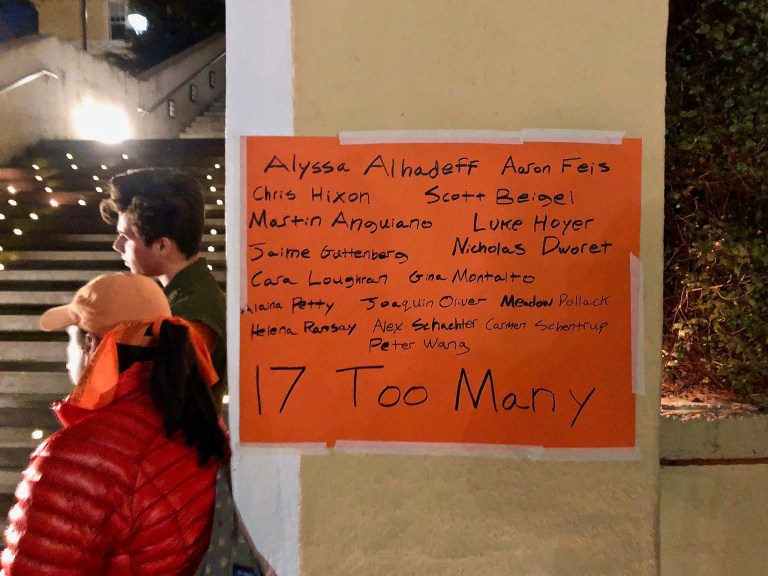
We don’t have answers. Words are wholly inadequate in the face of such jaw-dropping violence.
But we can’t stay silent. Because this keeps happening. It will continue to happen until we finally say, “Enough. Something has to change.”
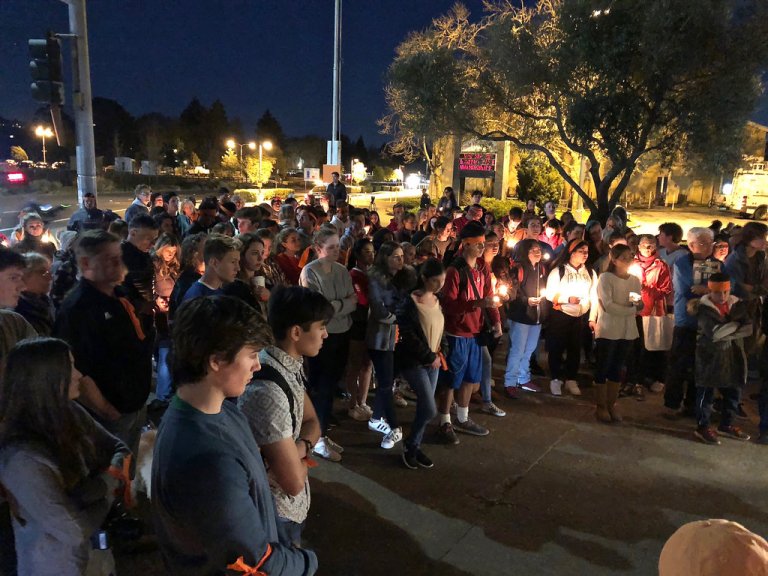
And that something is us. All of us.
The frontlines are where we live.
For all we invest in saving lives “over there,” in helping those fleeing war in far-flung places, in providing clean water or eradicating poverty, those of us who are American haven’t found a way to combat violence where we live. We can’t seem to summon the will to change our policies and postures, even when faced with overwhelming evidence that what we have now isn’t working.
Whatever any of us do for those affected by violence “over there,” it cannot be a substitute for showing up where we live—facing the violence in our own hearts and our own communities, and giving ourselves to combatting it.
The frontlines are where we live. They’re not just in Mosul or Aleppo or Pyongyang. The frontlines are Parkland. Chicago. Grand Rapids. Houston.
Violence has a gender.
Violence doesn’t have any particular creed (you say “jihad,” I say “crusade”) or ethnicity. But violence, particularly the kind we saw in Parkland this week, has a predominant gender.
98 percent of all mass shootings are committed by men.
90 percent of all murders are perpetrated by men.
What does this say about those of us who are male? What does it say about our view of gender? What does it say about what we value as “masculine”? These are questions we should have started asking a long time ago.
Until we live like we belong to each other, this will keep happening.
Yesterday, it emerged that the Parkland shooter allegedly belonged to a white nationalist paramilitary group. If true, what does it say about us that this is where he turned to for a sense of belonging?
We don’t know the shooter’s whole story, but we’ve seen this script before. Social isolation—a sense of alienation or separation—is a key factor in mass shootings like this one.
Glennon Doyle recently shared how her son’s teacher carefully looks for signs of loneliness among her students. Every week, she asks each student to write down who they’d like to sit with next week and who they believe has been an exceptional student. The teacher combs through their responses, looking for those who are “struggling to connect,” those who are being bullied and those doing the bullying. She says she first started doing this after Columbine, almost two decades ago.
Why? Because as Glennon writes, “All outward violence begins as inner loneliness… children who aren’t being noticed may eventually resort to being noticed by any means necessary.”
Do we have a posture of actively reaching out to “the other”? Do we look for those on the margins, those who are struggling to connect? It’s relatively easy to do this when “the other” is a refugee or a war widow thousands of miles away.
What about when it’s the teenage kid down the street?
We can’t let this become normal.
We can’t let endless candlelit vigils for murdered children become the new normal.
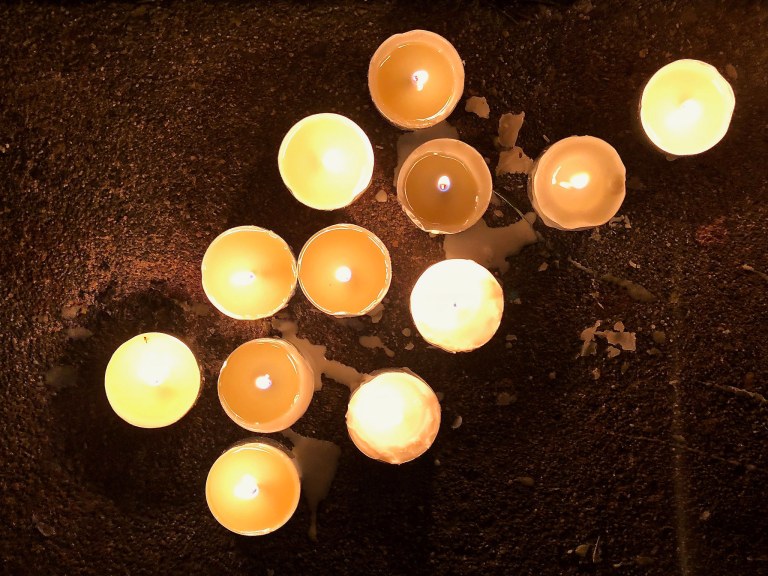
I remember Columbine.
I remember where I was when I saw the news. I remember how it reverberated—for days and weeks afterward, there was talk of almost nothing else.
More students died Wednesday in Parkland than at Columbine. But this was the 30th mass shooting in America this year alone. In 45 days. There have been over 200 school shootings since Sandy Hook in 2012.
We’ve seen it in Syria and Iraq.
The more violence we witness, the more “normal” it becomes. The world reacted in shock when Alan Kurdi’s body washed up on a beach in Turkey and when children suffocated on camera after last year’s chemical attack. Children are still drowning in the Mediterranean. Children are still being bombed in Syria. Now barely anyone pays attention.
War has become “normal.” Drone flyovers showing the rubble of bombed-out cities don’t have the same power to shock as they used to. A mass shooting at an American school is no longer an extraordinary event.
We have to resist the tendency to normalize these incidents, because normalizing them ensures they will continue to happen.
We have to stop putting our “rights” or “safety” over the good of our neighbor.
We as a society are obsessed with what some external enemy is going to do to us. We’re obsessed with our personal protection. As individuals and as a country, we stockpile arms in the belief that they alone can save us.
But has it made us any safer? Has it made our kids any safer?
What would happen if we learned to give ourselves away instead? What if those of us who revere Jesus—Christians, Muslims, and others—actually tried living what he taught?
What if we chose to lay down our lives instead of protecting them at all costs? What if we relinquished our “rights” for the good of the other? What if we stopped looking at policies and postures through the lens of how they benefit me and started asking how they serve and protect the most vulnerable, marginalized members of our communities?
If I lay down my life, no one can take it from me. If I lay down my weapon, no one can it from me. If I cling to them above all else, then I have already lost…
And this will only continue.
//
Image credits: here, here & here. Permission: Fabrice Florin / CC BY-SA 2.0.
Jeremy Courtney contributed to this post.

